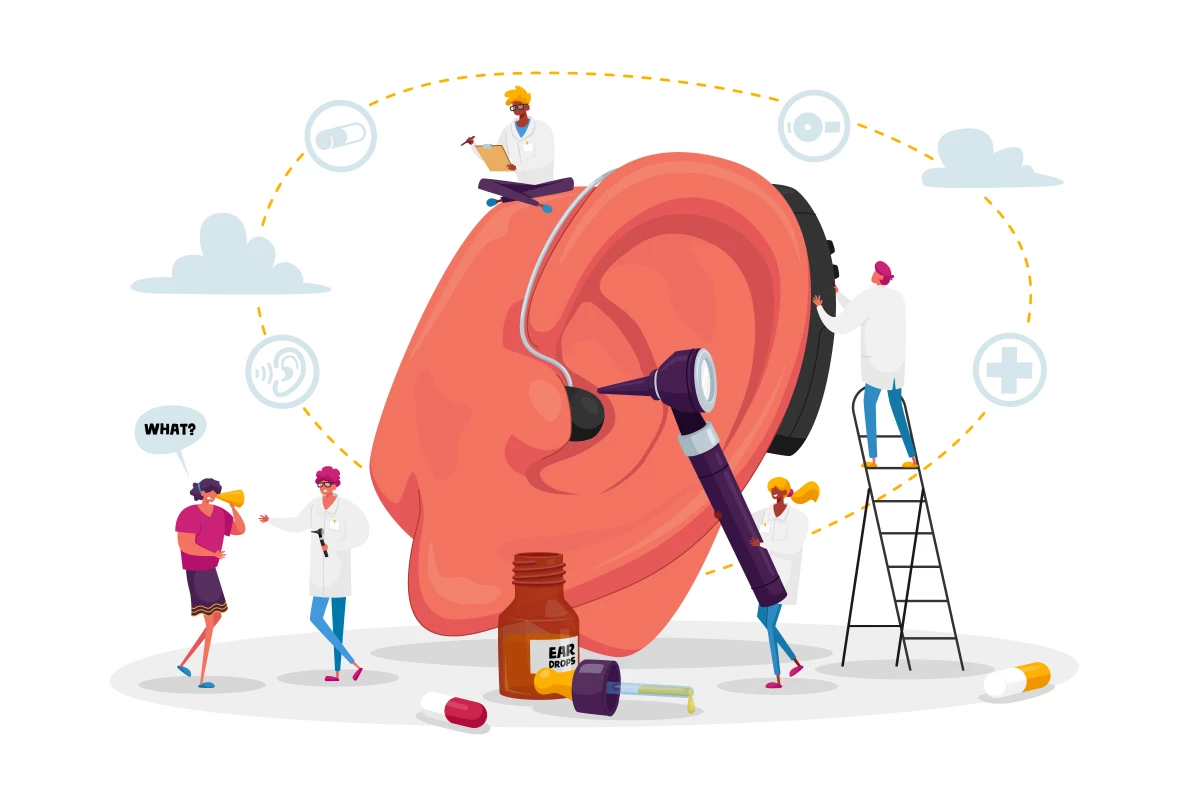A first-of-its-kind meta-analysis comprising more than 100,000 participants has found a significant association between the use of hearing aids and a reduced risk of dementia. The findings raise the curious suggestion that using hearing restoration devices could somehow slow the progression of cognitive decline.
For about a decade researchers have been uncovering particular associations between hearing loss and dementia. A key study in 2011 tracked several thousand people for more than a decade. The findings revealed mild hearing loss doubled a person's risk of developing dementia over 10 years, and severe hearing loss was linked to five-fold greater risk.
Subsequent studies have shown hearing loss not only sometimes precedes the appearance of dementia symptoms, but it can also be linked to accelerated signs of cognitive decline. While the association is certainly clear what isn't so clear is the mechanism connecting hearing loss to cognitive decline.
One early hypothesis – dubbed the "common-cause" hypothesis – argues both hearing loss and cognitive decline are the result of shared neurodegenerative processes. This means, as whatever dementia-causing pathological process progresses, it simultaneously causes cognitive decline and a degradation of one's hearing.
If the common-cause hypothesis is valid it means managing hearing loss through mechanical aids should make no difference to the rate of one's cognitive decline. But that hasn't been what researchers have been seeing over the past few years.
This new study published in JAMA Neurology offers a systematic review and meta-analysis of 31 recent investigations into the use of hearing aids in relation to cognitive decline. It's the first meta-analysis to quantify the beneficial impact of hearing aid devices relative to the progression of dementia.
The results show using hearing aids could be associated with a 19% decrease in long-term cognitive decline. In the short term the analysis even found the use of hearing aids led to a 3% improvement in cognitive test scores.
"… the results of our study seem to refute [the common-cause] hypothesis," the researchers state in the new paper, "as it proposes that hearing aids would not be able to correct hearing loss as auditory function deteriorates alongside cognitive function and would be unaffected by interventions. Instead we have shown that there is a statistically significant benefit associated with hearing interventions, which could correct or prevent cognitive decline to a certain degree."
So how could wearing a hearing aid help prevent, or at least slow, the onset of dementia?
The researchers present three main hypotheses to explain what could be going on. And they note it's most likely the cognitive benefits of using a hearing aid come from a combination of all three ideas.
The first explanation is dubbed the cognitive load hypothesis. This is the idea that as we experience progressive hearing loss we allocate greater cognitive resources to auditory perceptual processing. It takes more effort to hear things, resulting in fewer cognitive resources going to things like executive functions and memory encoding.
The second explanation is the sensory deficit hypothesis. In this scenario the lack of auditory sensory input leads to structural alterations in the brain. A kind of "use-it-or-lose-it" situation occurs where atrophy can be detected in parts of the brain not being fed auditory inputs.
The final hypothesis points to research showing social isolation increases a person's risk of dementia. Here it is suggested that hearing loss can lead to people withdrawing from social interactions, becoming more isolated. And this kind of isolation has been shown to accelerate cognitive decline.
"Hearing restorative devices could improve social connectedness by empowering individuals to participate in social activities that require hearing and communication, and some studies have suggested hearing interventions reduce loneliness," the researchers speculated in the study. "Thus, hearing aid use may prevent social isolation and its resultant development of cognitive impairment, although further studies are required to analyze this association."
Plenty more work will be needed to understand exactly how hearing loss is interlinked with dementia, but perhaps the most valuable takeaway from these findings is the importance for individuals experiencing hearing loss to seek out treatments at the earliest opportunity. It's estimated less than one in five adults in the United States with hearing loss wear hearing aids.
Susan Mitchell, from Alzheimer's Research UK, said addressing hearing loss should be a public health priority. She believes brain health can be improved if hearing aids are offered to all adults at the earliest stages of hearing loss.
“Dementia research has made great strides in recent months, but there’s a long way to go – and interventions that can reduce people’s dementia risk must be a public health priority," said Mitchell. "People must be able to access hearing tests if they are concerned about their hearing, so suitable support, like hearing aids, can be offered at an early stage, and help maintain their brain health."
The new study was published in JAMA Neurology.




